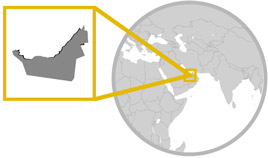Educacion Infantil, or Preschool Education is typically supported between 3 and 6 years of age but is not compulsory. However, those who choose to begin their education like this may enter during the autumn of the year that they turn 3 years old.
When the child turns 6 years old, they enter Educacion Primaria, or Primary School. In Spain, primary education is compulsory. At the age of 12 years old, the child enters Educacion Secundaria Obligatoria, or Compulsory Secondary Education, which lasts until the child is 16 and is also compulsory. Both stages incorporate a range of free state schools and costing private schools, allowing for parents to choose based on their preference and income. It should be mentioned that most state schools do not have a uniform, but many private schools do. There are also many private schools run by the state which follow the same rules as standard private schools.
Post-16 education is called Bachillerato, or Post-Compulsory Schooling, but may instead be Vocational Studies (Formacion Profesional). These stages mainly include exams and coursework equal to A Levels in the UK or the International Baccalaureate and incorporate subjects such as Spanish Language & Literature, Co-Official Language, Foreign Language, Philosophy, Physical Education, Spanish History, Science, Information Technology, Religious Studies, Creative Arts, Performing Arts, Social Sciences and Humanities. These are then broken down further into branches allowing a student to specialise in one or several subjects of their choosing.
Once the student turns 18 and graduates Bachillerato or Formacion Profesional, they may attend University, with most courses being 4 years and the exception, Medicine, being 6 years. Graduates may obtain a Bachelor’s Degree and move on to take a Master’s and then a Doctoral Degree. Universities are funded through university fees and typically universities fix the academic fees for a course, rather than increasing them each year like many other countries.

